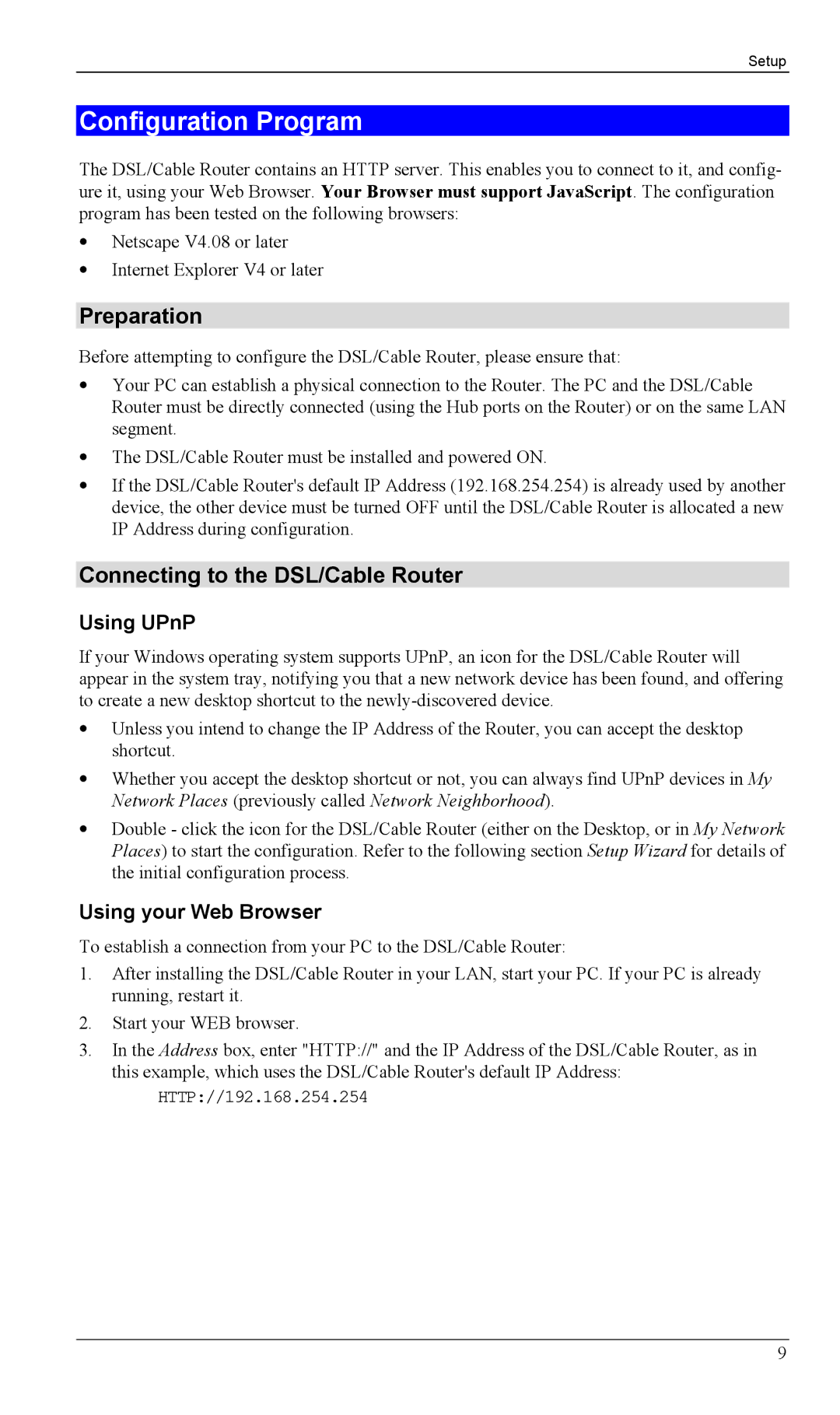
Setup
Configuration Program
The DSL/Cable Router contains an HTTP server. This enables you to connect to it, and config- ure it, using your Web Browser. Your Browser must support JavaScript. The configuration program has been tested on the following browsers:
•Netscape V4.08 or later
•Internet Explorer V4 or later
Preparation
Before attempting to configure the DSL/Cable Router, please ensure that:
•Your PC can establish a physical connection to the Router. The PC and the DSL/Cable Router must be directly connected (using the Hub ports on the Router) or on the same LAN segment.
•The DSL/Cable Router must be installed and powered ON.
•If the DSL/Cable Router's default IP Address (192.168.254.254) is already used by another device, the other device must be turned OFF until the DSL/Cable Router is allocated a new IP Address during configuration.
Connecting to the DSL/Cable Router
Using UPnP
If your Windows operating system supports UPnP, an icon for the DSL/Cable Router will appear in the system tray, notifying you that a new network device has been found, and offering to create a new desktop shortcut to the
•Unless you intend to change the IP Address of the Router, you can accept the desktop shortcut.
•Whether you accept the desktop shortcut or not, you can always find UPnP devices in My Network Places (previously called Network Neighborhood).
•Double - click the icon for the DSL/Cable Router (either on the Desktop, or in My Network Places) to start the configuration. Refer to the following section Setup Wizard for details of the initial configuration process.
Using your Web Browser
To establish a connection from your PC to the DSL/Cable Router:
1.After installing the DSL/Cable Router in your LAN, start your PC. If your PC is already running, restart it.
2.Start your WEB browser.
3.In the Address box, enter "HTTP://" and the IP Address of the DSL/Cable Router, as in this example, which uses the DSL/Cable Router's default IP Address:
HTTP://192.168.254.254
9
